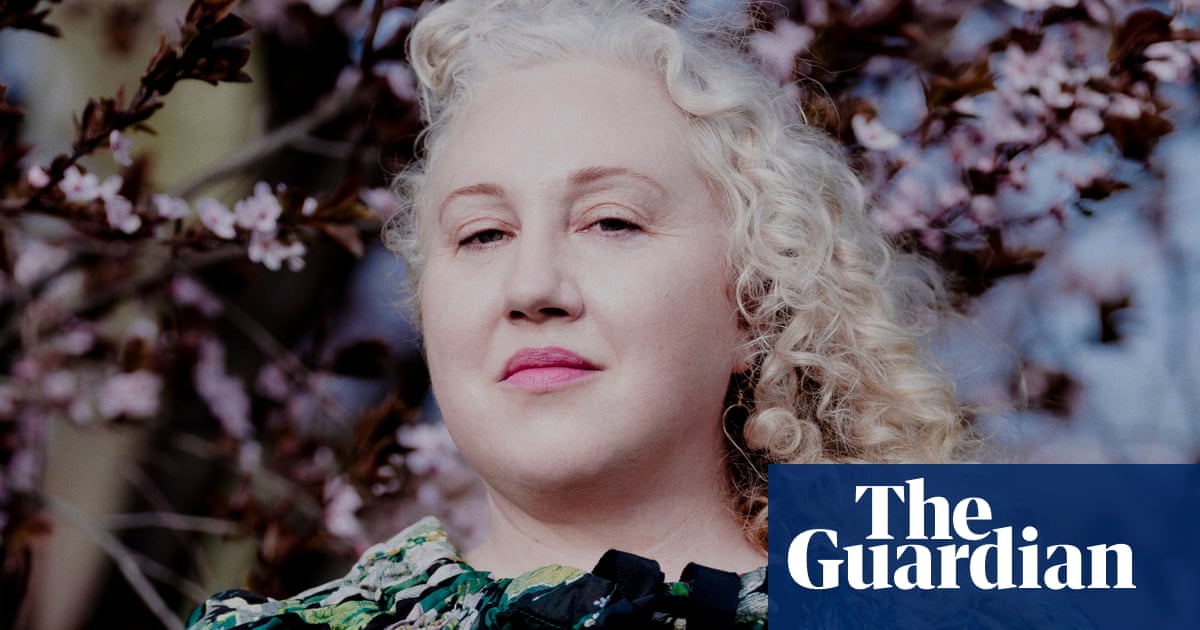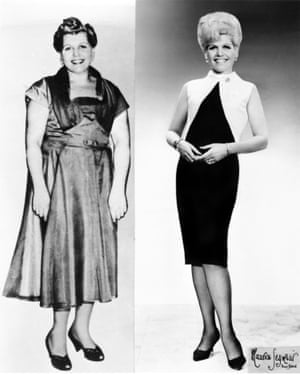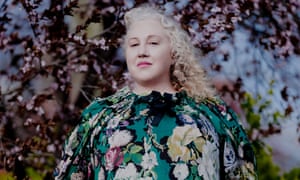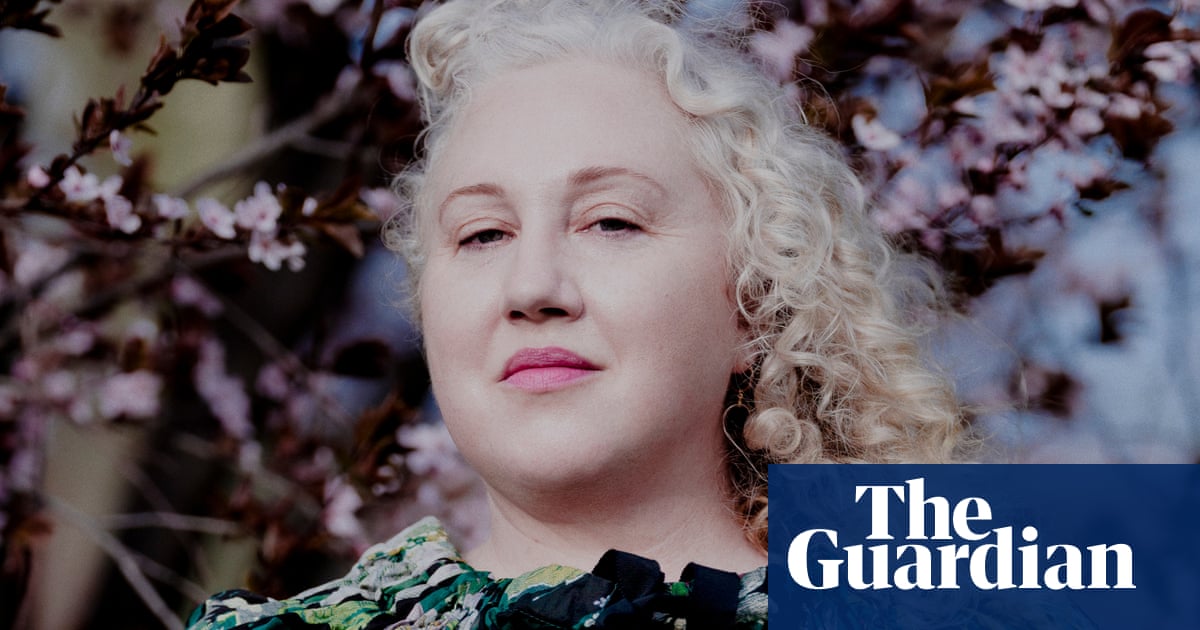Ive been on a diet since I was four. Can I finally make peace with my body?
Im never going to stop wanting to be thinner and chasing it. But Im OK with that

Every morning I have the slightly morbid habit of reading the New York Times obituary section. I have a subconscious wish to see in one illuminating flash how another person figured out her story so I can gain some insight into mine. It was mostly a soothing habit, until the morning I read about Jean.
In late April 2015 the obit headline read: Jean Nidetch, a Founder of Weight Watchers, Dies at 91. It had not ever occurred to me that an actual person had thought up Weight Watchers. To me, at 38 years old, the ubiquitous weight-loss company had no origin story; it had always just existed, I thought, to torment me.
Tortured would be a polite way to label my relationship to dieting. I cant even recall how old I was when my parents put me on my first diet. Four? I think I was nine when they signed me up for Weight Watchers. It didnt work. None of the diets ever did. I am a chronic yo-yo dieter whose weight has risen and fallen so many times that, if charted, it would resemble a city skyline.
But there was Nidetch smiling at me, with big owl-like glasses and a blond bouffant, holding a piece of cake she clearly had no intention of eating. My first thought was that, finally, I had a face to put to my misery. I thought I knew what the story of her life would be: some variation of a thin woman becomes rich and famous butting into overweight peoples lives, never giving them a moments respite from calorie-counting.
But as I read, I didnt see a villain in Nidetch; I saw myself. Jean had been a chubby kid who turned into a fat adult, a woman who wrestled with a raging sweet tooth and whose preferred method of consumption was not enjoying a slice of cake with friends but rather inhaling an entire pack of her favourite cookies in the privacy of her own bathroom. Jean and I were both 5ft 7in, Jewish, blond and residents of Brooklyn. When I look at photos of her before she lost the weight, the physical resemblance between us is so strong, she could easily be my aunt or cousin.
I realised that I was the same age as Jean was when shed begun to lose the weight and transform her life beyond her wildest expectations. Her rock-bottom moment was when someone mistakenly assumed she was pregnant. Dozens of people have mistakenly assumed I was pregnant. One woman wouldnt even take no for an answer. You must be at least postpartum, she said, and stared at my abdomen. I made a mental note never to wear the grey hoodie I had on again.
Jean also sounded human, a woman whod struggled with love and age and work and family and her place in the world. So instead of delighting in the demise of a newfound nemesis, I felt a moment of connection.
For the past several years I have felt trapped between dieting my way to a slimmer body and simply trying to love myself as I am. But no matter how impossible perfection may be, working towards it is satisfying in its own way. Theres action involved in inching closer to a goal, even one you cant attain counting calories, working out, weighing in.

Nidetch was a woman who succeeded where I and millions had failed. She lost 70-plus pounds and kept them off, then she founded a company and became a mogul, and all of this was more than 50 years ago, when help wanted ads were still divided by gender.
I admit I had long dismissed Weight Watchers as the most retro, basic, lowest common denominator, least chic diet company in the world. I associated it with bored housewives, not a writer, like me, with access to Manhattans most lauded diet doctors. I thought, in short, I was better than Weight Watchers. But it worked for Jean, and if I wanted to find a way out of this constant struggle, why not try it myself? So I decided to rejoin for a year with a good attitude while also writing about Nidetchs own American dream and nightmare of a life.
The Weight Watchers diet began in 1963 with a strict list of things you could have (liver was mandatory) and things you couldnt (ketchup). Now everything is permitted on the diet, in moderation. I was assigned a few dozen points per day, which correspond to calories. Everything you put in your body has a value and my job was to keep a tally and stay in line. I didnt think I would lose 70lb like Jean did, but I did let myself slip into fantasy. If I lost a pound a week, I would be 50lb lighter in a year, but what else could happen? Every diet is a promise that if you change your weight, youll change your life. What did transformation mean to me after all these years of chasing one?
***
I cannot remember the first person who called me fat. Nor can I remember when it dawned on me that my body was fat and that fat was undesirable. I have always been fat; its the only reality I can remember.
My parents are both the kind of people who live in California where I grew up because they love being outside. My mothers favourite colours to wear are green and brown, because they remind her of nature and of Robin Hood (she is a socialist). We shopped for organic produce and drank freshly squeezed juices and green smoothies decades before that was considered recherch. My mother frequented Jazzercise classes; my father had started surfing as a teenager. Vacations were spent swimming and mountain biking in Yosemite; winters were for skiing in British Columbia or Colorado. My hair was white-blond, bleached from the sun.
They split when I was a toddler. I have only vague early memories of them together in the same room, and they involve hearing them argue or watching my father eating steak dipped in vinaigrette salad dressing that my mother prepared. I dont recall having a lot of sit-down, well-balanced family meals. Im an only child and my parents were far from amicably separated, but they could easily focus on my weight. Their main fear was that I would have to start buying clothes from a special section.
My first round of Weight Watchers happened when I was still in elementary school. My mother and I joined together parent-and-child dieting was more acceptable in the mid-80s. This was the same woman who worked for Planned Parenthood, who took me to protests against the Miss California pageant and to lectures by Gloria Steinem. I had a hard time as a child remembering what was on and off the diet. When I joined again later, I wasnt so much confused as dejected by a plan where a single medjool date was four points of my allotted 29. I remember the night before the diet was to begin, I went to the refrigerator for some lemonade, and my mother told me, Thats your last glass. You dont want to drink your calories. Now, more than 30 years later, the idea of not wasting calories on beverages still haunts me every time I drink grapefruit juice or order a margarita.
The standard routine as imposed by my parents was that when we entered a restaurant, one of them would tell me what I was allowed to eat shish kebab or salad, for example, but never bagels or fried chicken. To this day, they will comment on what I order. Do me a favour and eat slowly, my dad said over dinner recently. Sometimes as a kid, I would beg enough that theyd break down and let me eat what I wanted a slice of pizza or a brownie then immediately tell me that I was going to gain weight.
In photos from the time, Im only mildly chubby, but my family wanted me to be happy and healthy and to shield me from the ridicule of others. It didnt work. I remember being at a grocery store with my mom and hearing an older man say to her, Why are you so thin and your daughter is so fat? What kind of grownup is that mean for no reason? And just what did he expect her to say? I remember her looking uncomfortable and saying, I dont know. Perhaps she was too shocked to say anything else, but what I heard was her lack of loyalty.
Eventually, dieting became something I wanted for myself. I did it not just because my parents had instilled it in me as a kind of religion, but because I wanted to look good, too.
I first learned the transgressional pleasures of eating in college. I made a ritual of calling Pizza Time, which was about half a block away from my apartment, and having them deliver a medium pizza with ham and mushrooms. That pizza was all for me, sitting on the floor of my living room in front of the TV. I found a kind of endorphin rush from doing with abandon what I had been told my whole life was wrong.
Around the same time, I had my first serious relationship. I wish I could say falling in love for the first time was some kind of total healing experience for my body, but my boyfriend was 5ft 11in and weighed 135lb; less than 10st. I secretly wanted to lose enough weight so that I would weigh less than him, but in the seven years we were together it never happened.
Well into my mid-30s, I considered dieting my biggest secret. I wish I could say it was a thrilling one, but its more like waxing my upper lip Id rather people thought I never had to worry about it in the first place. As the pounds would start coming off, I felt physically lighter. I slept well. I was in a better mood. But I also felt strangely isolated. A paranoia would creep in. The coded compliments, like You look great seemed to say so much about what people thought of how I looked before.
By the time I turned 35, I was living in Brooklyn, going through a breakup, and diagnosed with clinical depression for the first time in my life. Food was the most reliable comfort I could find: cookie-dough breakfasts washed down with Diet Coke and the kind of delivery orders where the restaurant packs four sets of plastic utensils. The cocktail of pills I took helped lift me out of the dark fog, but they also elevated my weight. I hit 250lb, my highest ever. The first time I saw a number that high on my own scale, my initial instinct was that I should die. Not take my own life, but disappear or turn into dust and evaporate. Failure isnt a strong enough word. Letting myself be fat hasnt ever felt to me like liberation.
At 38, I tried a liquid diet and was so committed to it that, while reporting on a conference entirely dedicated to learning to stop dieting, I would duck into a bathroom stall during lunch and drink a high-protein shake, furtive as if I were going to do a line of coke. Then there was a doctor who devised a plan high in plant-based foods and protein. (She had me eating two ounces of papaya every morning for digestion and milk with sugar at night. When I asked her if I could put honey instead of sugar in my milk, she replied, aghast, Absolutely not.) After I weighed in with her each month, shed say, in her thick Romanian accent, You are going to look like model.
My parents have paid for the majority of these schemes, because diet doctors and health coaches and diet food delivery services are ridiculously expensive. It was an investment in me we were all three holding on to the idea that I could just lose the weight and be done with it. But no one is ever done with it. I always find new ways for my body to fail to meet expectations.
***
I have been single for some time, and when I say some time, I mean so long that I have acquaintances who have got married, divorced, remarried, and had two children since I last had a serious boyfriend. I know there are people who claim to enjoy dating, just like there are people who claim to enjoy a cold shower in the morning. But I am an unenthusiastic and inconsistent dater.
Every few months Ill force myself to log on to the good app and sort through men. One Friday night I matched with an older man, which was new for me. He was a silver fox, I told myself, and was thrilled by his old-world mannerisms, like offering to send a car to my apartment to pick me up. I thought it was a little odd when, after he answered the door and I said, Hi, Im Marisa, he said, Yes. Yes, you are.

As we sat on his couch drinking wine and talking about the use of psychedelic drugs in therapy (he was a psychologist), I felt like I was a character in a heady movie about mannered New Yorkers. Its so easy for me to fantasise when I meet someone and immediately begin to picture the future. We had dinner at an Italian restaurant and he cried while talking about his teenage son. So sensitive, I thought, although he wasnt asking me much about myself, and he let slip that he had lied on his profile and was five years older than hed said he was. He paid, we had another drink at his place, and he kissed my cheek goodbye. I was excited to see what might happen on another date.
The next morning, I received a text from him. It was a long message explaining why exactly he was left with a negative impression of me. The reason, he said, was that my online photos were too flattering, probably not up-to-date, and didnt fairly reveal what my body looked like in person. He used the word deceit and said that this was clearly an awkward topic but he thought I should know, for my own good. I was, in short, too fat for a second date. I ran a bath, ordered Indian food, and cried. I havent been on a real date since.
One part of the body positivity movement I have always resented is its adherents repeated assurances of how hot their spouses find them, as if the only way to prove that you dont have to lose weight to be happy is to have a sexy husband who cant keep his hands off your curves. Its a subtle message that body positivity can only work if you have a lot to show for it, including an enthusiastic partner. Do I still have to try to be happy about something men are telling me flat out repulses them?
I know there are men out there who are specifically attracted to fat women but I have always resisted them, even though I once had a psychoanalyst who thought that would solve all my problems she also said, Your face is perfectly good. Ive never wanted to be the fat girl of someones dreams it feels both fetishistic and not connected to who I am or how I see myself. I find myself wanting to be seen for me, not my body type.
The horrors, when I reflect on them, still feel endless. There was the guy who pawed at my belly while I was sitting on top of him naked and said with disbelief, Look, Im super turned on right now. A man I had been extremely casually seeing said, after wed slept together three times, that he was thinking he should start charging me. Do you think the only way I can get someone to have sex with me is by paying? I asked, both yelling and crying at the same time. I did have sex with him later that night, but its one of the most shameful things I have ever done.
If dating is the part of my life where I feel most like a failure, it cant be entirely because of my appearance. (Maybe some of it is my personality!) But my body has been the site of so many romantic disasters, so much, to use an overused word, trauma, I cant look at it as entirely separate. I want to be treated not just well, but like a human, which sometimes seems too much to ask.
***
The year I spent attending Weight Watchers and writing about Jean Nidetchs life forced me to consider my relationship to weight almost daily, but it also made me consider my relationship to other people. Nidetch believed that sharing made us human and that struggling with weight could be unifying rather than isolating. She knew that what dieters needed more than a plan and a programme was the support of each other, a place to vent or share notes or just listen.
I found my own ragtag community in a Brooklyn Weight Watchers studio led by Miriam, a vegan, tattooed woman with purple hair, and a rotating cast of fellow dieters far outside my usual social circle: a judge, a nurse trying to lose enough weight to qualify for the air force, an Orthodox Jewish mother with a dry sense of humour. We were different, but also the same. All 40 of us in the room could relate when a photographer or police officer talked about the specifics of their bodies, and maybe that was why we turned up again and again.
I didnt entirely fall for the spell of community sometimes, I avoided meetings, didnt talk, got bored hearing people stress out about how much they anticipated eating on upcoming vacations but I felt soothed knowing that their problems with food were just like my own.
I didnt lose so much during my Weight Watchers experiment that it solved any of my problems. I didnt magically transform into a person who no longer craves sweets, nor did I become some kind of vixen who is irresistible to men. I am smart enough to admit that I dont even know if Ill be able to keep off the 20-ish pounds I did lose. But this is not a story of failure. To look beyond the scale (a Weight Watchers phrase that makes me cringe), I am healthier, my clothes fit better, I have fully committed to exercise. But Im never going to stop wanting to be thinner or to stop chasing it.
That acceptance, even if its an uneasy one, is my new normal. I havent stopped seeking the feeling of control that dieting gives me, but I have abandoned the narrative arc that being on a diet puts on our lives. I am focusing on the present, which means not lamenting all the times I have failed at dieting in the past and not focusing on some perfect future me that will suddenly be fine with the fact that my thighs touch when I walk. I have moved dieting away from the centre of my life.
I feel exhilarated about the life that I have ahead of me. To live big is to stand out. I learned this by facing the extent of my unhappiness, and how much of that unhappiness was connected to my body. I have come to understand my own hunger more, and it isnt to lose weight above all else. I will make my choices on my own terms. That goes for dieting or for any other part of my life. Im not going to do anything out of fear of the final weigh-in.
This is an edited extract from This Is Big: How The Founder Of Weight Watchers Changed The World (And Me) by Marisa Meltzer, published by Chatto & Windus on 30 April at 14.99. To order a copy for 12.59, go to guardianbookshop.com.
